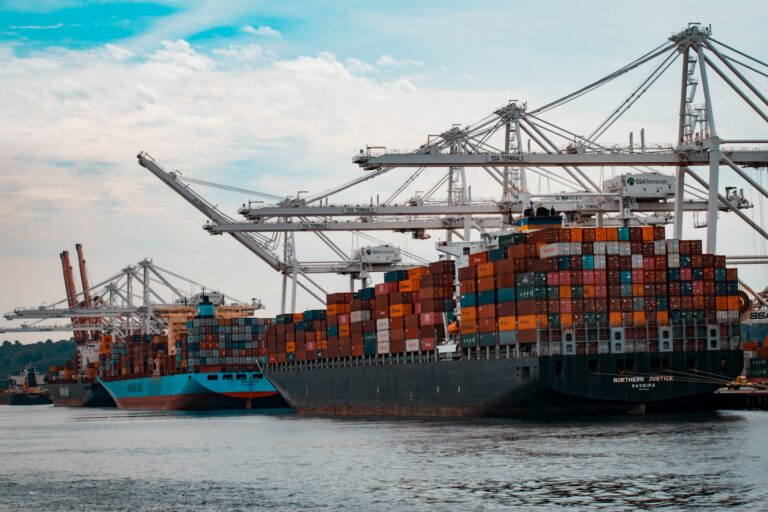International trade has opened opportunities for businesses to connect with global markets, but it comes with its own set of complexities.
Companies need to comply with varying trade regulations, tariffs, and documentation requirements, often feeling overwhelmed by the legalities and administrative processes.
This guide provides insights into critical areas of trade compliance and how businesses can confidently meet these challenges.
Why Compliance is Crucial in International Trade
Failure to adhere to trade regulations can lead to severe consequences, from hefty fines to damaged reputations. Compliance is not just about following rules; it ensures smooth operations, strengthens partnerships, and safeguards your business against risks.
Key Elements of Trade Compliance
- Customs Laws: Every country has specific customs regulations that businesses must respect, including rules related to import/export values, classifications, and restrictions.
- Export Controls: Certain goods, technologies, and services may require export licenses or permits to comply with national security regulations.
- Sanctions and Embargoes: Businesses need to ensure they are not trading with prohibited countries, organizations, or individuals. Violating these restrictions can result in penalties.
To streamline this process, food manufacturing companies can obtain international trade compliance certification to demonstrate their commitment to adhering to these essential global standards.
Decoding Tariff Structures
What Are Tariffs?
Tariffs are taxes imposed on imported or exported goods by governments. These charges can vary depending on the product category, volume, and country of origin. Understanding tariffs allows businesses to price their products competitively in foreign markets.
Managing Tariff Costs
- Harmonized System (HS) Codes: Classify goods accurately using HS codes to ensure the correct tariff is applied.
- Free Trade Agreements (FTAs): Leverage FTAs between countries to enjoy reduced tariffs or duty-free status for eligible goods.
- Tariff Engineering: Design or modify products to fit lower-tariff categories within legal boundaries.
By becoming familiar with tariff systems, businesses can avoid unexpected costs and strengthen profitability.
Essential Trade Documentation to Get Right
Incorrect or incomplete trade documentation can delay shipments and disrupt supply chains. Here’s a rundown of the key documents required for international trade.
Must-Have Export Documents
- Commercial Invoice: Details the transaction, parties involved, and goods value.
- Packing List: Specifies how goods are packed, dimensions, weights, and handling requirements.
- Certificate of Origin: Verifies the country where goods were manufactured, often required for customs purposes.
Additional Paperwork for Smooth Operations
- Bills of Lading: Serves as a shipping contract between the exporter and carrier.
- Import Permits: Necessary for regulated goods entering a specific country.
Maintaining accurate and complete documentation ensures compliance and minimizes delays at customs.
How Technology Aids in Trade Compliance
The rise of digital tools has made it easier for businesses to handle trade regulations efficiently.
Digital Solutions for Trade Management
- Automated Classification Tools: Find the correct HS codes for your products.
- Compliance Software: Use tools like Descartes or Amber Road to monitor international sanctions, licenses, and embargoes.
- Document Management Systems: Store and retrieve trade-related documents digitally for better organization and access.
By integrating these solutions into your operations, you can boost productivity while maintaining regulatory adherence.
Benefits of Staying Compliant in International Trade
Adhering to trade regulations can open up new opportunities and help businesses thrive in global markets.
Key Advantages of Compliance
- Access to Global Markets: Many countries require proof of compliance before allowing foreign goods and services.
- Operational Efficiency: Reduced risks of shipment delays and penalties improve your logistics operations.
- Enhanced Reputation: Demonstrating compliance builds trust with partners and customers alike.
- Cost Savings: Avoid punitive fines and optimize operations to minimize expenses.
By making compliance a business priority, you can focus on long-term growth and customer satisfaction.
Common Compliance Mistakes and How to Avoid Them
Mistakes to Watch Out For
- Neglecting Licensing Requirements: Exporting restricted goods without proper licensing can lead to penalties.
- Poor Record Keeping: Failing to retain accurate records as required by customs authorities.
- Ignoring Sanctions: Trading with restricted parties due to lack of proper due diligence.
Pro Tips to Stay on Track
- Invest in Training: Ensure employees are familiar with applicable regulations and updates.
- Hire Specialists: Work with legal consultants or customs brokers who are well-versed in trade laws.
- Conduct Regular Audits: Periodic reviews of your trade processes identify vulnerabilities and areas for improvement.
Taking proactive steps to address these common errors will safeguard your business from compliance woes.
Building a Sustainable Trade Strategy
Compliance is not a one-time task but a continuous process aligned with your trade goals.
Key Pillars of a Sustainable Trade Strategy
- Stay Updated: Monitor changes in trade policies, tariffs, and agreements in your target markets.
- Leverage Certifications: Obtaining recognized credentials like an international trade compliance certification builds credibility with governments and stakeholders.
- Collaborate: Establish strong ties with freight forwarders, brokers, and key players in your supply chain.
An effective trade strategy allows you to adapt to evolving regulations while maintaining a competitive edge.
Drive Success in Global Markets
Effectively managing trade regulations, tariffs, and documentation is essential for thriving in today’s dynamic business landscape. By prioritizing compliance, adopting innovative tools, and engaging with experts, your business can unlock the full potential of international trade.
For businesses seeking specialized guidance or streamlined solutions, consider consulting with trade compliance experts to ensure every shipment goes smoothly.


